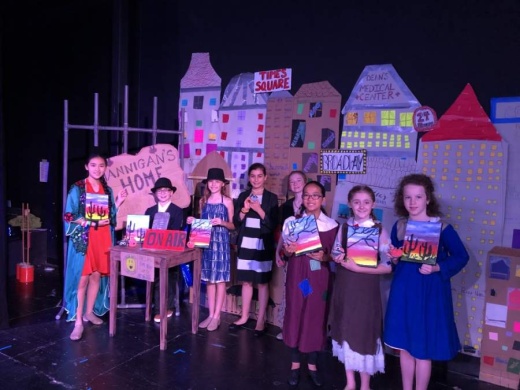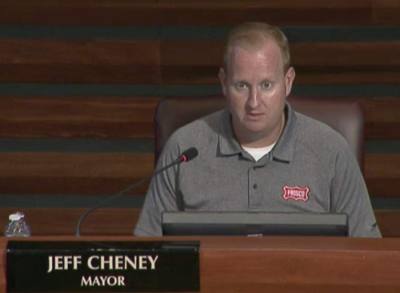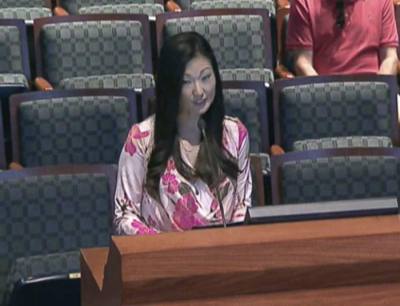Frisco City Council is in early discussions about a projected shortfall in hotel-motel tax revenues, which are used in part to fund local arts programs each year.
Revenue shortfalls due to the coronavirus pandemic are still preliminary, but it’s likely the city will collect several million dollars less than budgeted, according to city staff. Those tax revenues are the source for the $175,000 annual payment to the nonprofit Frisco Association for the Arts.
The council discussed the arts association’s contract with the city during its work session May 5. Council ultimately chose to wait to take any action until its summer work session in June. At that point, city staff expect to have a better picture of Frisco’s finances due to the coronavirus pandemic, which caused businesses to close and travelers to cancel hotel stays throughout March and April.
“We were looking at whether we had the funds available for that [Frisco Arts],” Mayor Jeff Cheney said at the council meeting that followed the work session.
Frisco Arts Executive Director Tammy Meinershagen asked the council during its meeting to consider funding the arts grant program at the reduced rate of $100,000 for this fiscal year only.
“It's not just $100,000 at stake,” Meinershagen said in a May 6 interview. “It's the commitment of the city to the arts that can really help keep the momentum going.”
Assistant City Manager Nell Lange said revenues for the hotel-motel fund were originally expected to be $7.4 million this fiscal year, but staff from Visit Frisco and the city now project those revenues will be $3.9 million.
“In that budget, our anticipated operational expenses are $3.6 million with $2.7 million worth of debt,” Cheney said. “So we're looking at potential expenses that we have to cover of $6.3 million with only $3.9 million in revenue.”
Cheney said the arts are important to the community and that the city plans to work with Frisco Arts “to do things differently in 2020.”
“We're looking for some creative ideas to continue to support the causes that are near and dear,” Cheney said.
Council Member Tim Nelson suggested Frisco waive facility costs for arts events or provide venues to arts groups that may not have been previously available.
“I think it's critically important that we figure out a way to fund the arts in the city,” Nelson said. “That being said, I don't want to project any kind of false hope, in that there will be money. I don't know that there will be, and based on what we're hearing from [Lange], the odds are against it. But I'm willing to keep an open mind and continue to work at this until the June work session.”
Meinershagen said arts groups would be interested in using the council chambers, Black Box Theater and Comerica Center. Cheney said Frisco is allotted a certain number of days to use the local venues owned by the city but run by private groups.
“That's something we're not likely to use this year,” the mayor said. “That could be a great opportunity to look at using one of these incredible venues for some programming that we have a contractual right to use. Celebration of the arts may look different this year, and it may be great.”
The day after the meeting, Meinershagen said she was grateful the council did not shut the door on providing funding for the arts this year. Frisco Arts uses the city funds to award grants to community nonprofit and cultural organizations.
“In the summer work session, we [will] have an opportunity to share how our arts groups are going to adjust their programming for the post COVID-19 era,” Meinershagen said. “The whole arts industry and sector has to innovate right now. It’s a very difficult time for all artists.”
Meinershagen said there were several local arts organizations in attendance at the meeting, and they were excited about the idea of using city venues since a lot of the money that the groups spend goes toward venue rentals.
“If that goes away and the city can provide the space, well, we've got the talent,” Meinershagen said. “Then it's just a matter of how do you engage the public in a safe way with the arts community again.”
She said working with the city on venues, marketing efforts and possibly city staff resources would be a “huge help” for the organization and the arts groups in Frisco.
“We thought [that] was a very creative way to solve this problem because obviously, the money is limited—there's no question about that,” Meinershagen said.
She told council members she believes the arts have helped sustain the public during the pandemic and that they “will play a major role in the resurgence” of the economy.
“Out of a crisis comes opportunity,” Meinershagen said. “And so we do have an opportunity to get very creative and to lead the arts in how to work, how to function, how to succeed after this crisis. Frisco has always been an innovative community. We're excited about the idea of how do we really lead in this endeavor.”







